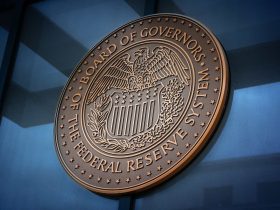Listen below or on the go on Apple Podcasts and Spotify
TikTok files to block the forced sale until Supreme Court review. (0:15) Nvidia faces China monopoly probe. (2:03) Activist pushes for big changes at Macy’s. (3:22)
This is an abridged transcript of the podcast.
Our top story so far. TikTok and parent ByteDance (BDNCE) asked an appeals court to put a temporary block on a law that would force the sale of the video-sharing app while it seeks a U.S. Supreme Court review.
The companies filed an emergency motion with the U.S. Court of Appeals for the District of Columbia, saying that the app would be shut down for its 170 million monthly domestic users.
A federal court on Thursday upheld the impending ban, rejecting ByteDance’s argument that the ban was unconstitutional.
The companies had sued the U.S. to overturn the law, the Protecting Americans from Foreign Adversary Controlled Applications Act, which was signed by President Joe Biden in April. It requires TikTok’s divestment from ByteDance or a ban in app stores in the U.S. by January 19.
Assuming the ban survives to January 19, it’s still unclear what happens in the upcoming second Trump administration. Trump pushed to ban the app during his first term as president but warmed up to it during his 2024 campaign, and he is expected to try to stop the ban from taking effect after he assumes office on January 20.
In today’s trading, selling picked up in stocks, with growth seeing the most pressure. The Nasdaq (COMP.IND), down nearly 1%, trails the S&P (SP500) and the Dow (DJI).
Rates are slightly higher across the Treasury yield curve.
BlackRock says they are staying pro-risk into 2025 and increasing their Overweight on U.S. stocks, anticipating “AI beneficiaries to broaden out beyond tech.”
“We’re also confident U.S. equities can keep outpacing global peers given the ability to better capitalize on mega forces, a favorable growth outlook, potential tax cuts and regulatory easing.”
“U.S. outperformance is unlikely to extend to government bonds,” they added. “We go tactically underweight long-term Treasuries as we expect investors to demand more compensation for the risk of holding them given persistent budget deficits, sticky inflation and greater bond market volatility.”
Among active stocks, China’s antitrust agency opened a probe into Nvidia (NVDA) on concerns it may have beached monopoly laws. The State Administration for Market Regulation has opened the probe, according to China Central Television.
Nvidia has tweaked its existing artificial intelligence accelerators for sale in China to comply with existing U.S. export control laws. Nvidia said on its most recent earnings call that it expects China to remain a “very competitive” environment, notably in the data center market.
AMD (AMD) caught a downgrade from Bank of America, which cited lower estimates for AI and PC-related revenue in 2025.
Analyst Vivek Arya said a higher competitive environment, specifically from Nvidia, as well as the “growing” cloud preference for custom chips from Broadcom (AVGO) and Marvell Technology (MRVL) is likely to limit AMD’s market share gain potential.
Barclays upgraded Robinhood (HOOD) and Charles Schwab (SCHW) to Overweight from Equal Weight for different reasons as market conditions look more constructive heading into 2025, especially for alternative asset managers and brokers.
For Robinhood, analyst Benjamin Budish sees a “uniquely differentiated growth opportunity set and an increasingly demonstrated ability to execute.” The company should also directly benefit from crypto. In Schwab’s case, the company’s medium-term EPS growth trajectory should be one of the “easiest” in Budish’s coverage.
In other news of note, activist investor Barington Capital has built a position in Macy’s (M) and is pushing the department store operator to make significant changes, according to The Wall Street Journal.
The activist wants Macy’s to lower its spending levels and consider the separation of a real estate unit within the company, as well as consider options for the Bloomingdale’s and Bluemercury chains.
The company said its board and management team are committed to delivering sustainable, profitable growth and driving shareholder value.
“We have consistently demonstrated open-mindedness, including with respect to regularly reviewing the company’s strategy and capital allocation framework and exploring all paths to enhance value.”
Barington Capital Group thinks Macy’s has real estate worth between $5 billion and $9 billion. The prominent activist investment firm was established in January 2000 by James Mitarotonda.
Speaking of miracles on 34th street, the holiday season is officially in full swing, at least for Gen X. On this day in 1965, “A Charlie Brown Christmas” first aired on CBS. For some reason, the original 1947 “Miracle on 34th Street,” set in Macy’s, premiered in May.
And in the Wall Street Research Corner, Goldman’s equity teams say it’s time to sharpen up those portfolios.
Investors should focus on large-cap stocks with the highest prospective risk-adjusted returns. They revised their basket of stocks with a high Sharpe ratio—a comparison of how well a stock performs in relation to a risk-free investment such as U.S. Treasuries—to include 39 new stocks.
Strategist David Kostin says: “The median stock in the rebalanced basket has returned -2% year-to-date, compared with a 19% gain for the typical stock in the S&P 500. However, looking forward, the median constituent is expected to generate nearly four times the return of the median S&P 500 stock during the next 12 months.”
Among the new names are Alphabet (GOOG) (GOOGL), Paramount Global (PARA), Caesars (CZR), Coca-Cola (KO), Devon Energy (DVN), Biogen (BIIB), Uber (UBER), First Solar (FSLR), AMD (AMD), and Dow (DOW).
Read the full article here












Leave a Reply